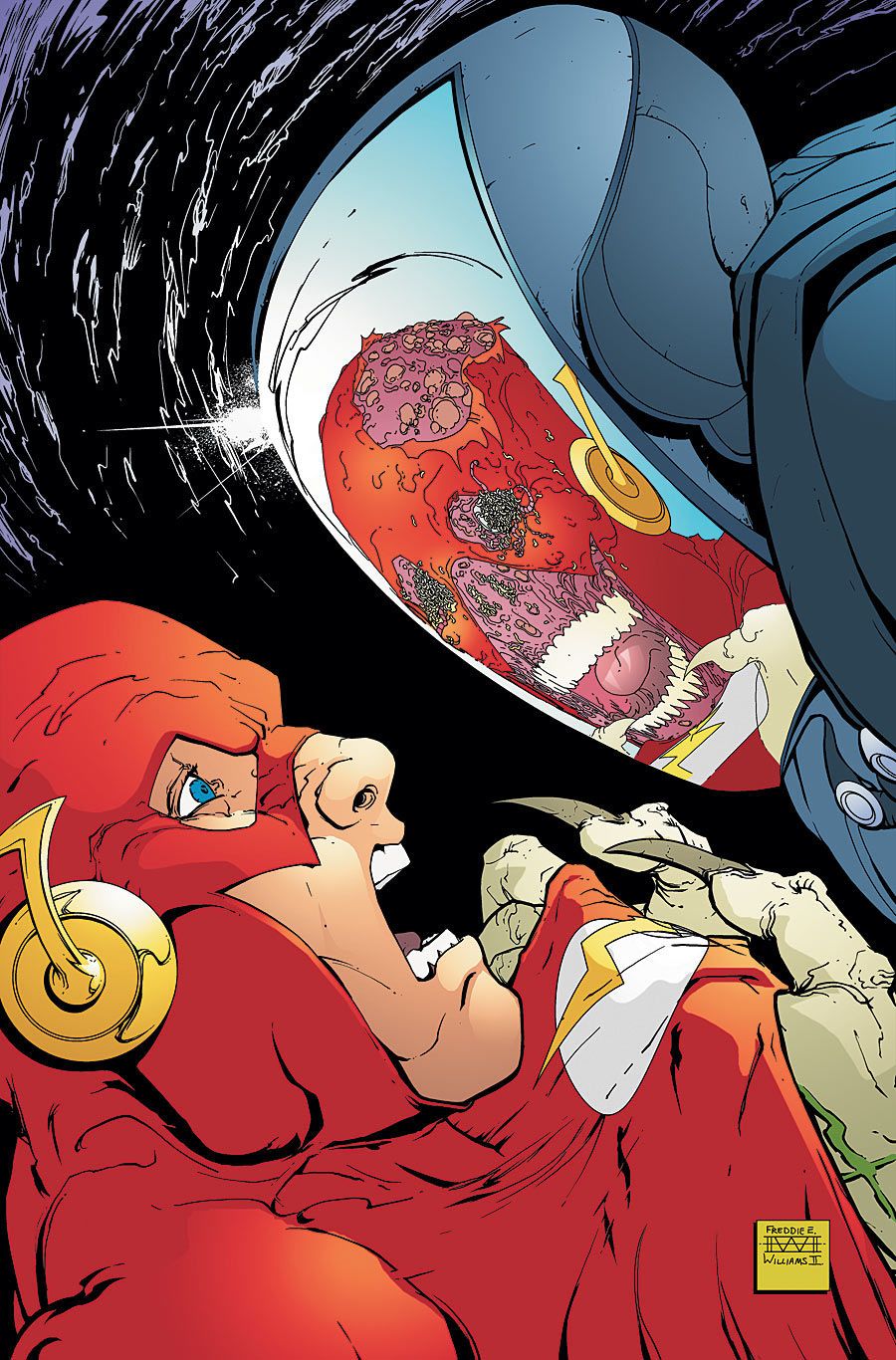Perhaps this is what you get when you send comics’ best Rogues Gallery into space.
Ever since the demise of the utterly terrible Bart Allen "Flash" series, writer Mark Waid has tried invigorate the franchise. He (or DC editorial) brought back not just Wally West, but his entire family as well, including his super-powered children Iris and Jai. Waid seemed unable to generate much interest in the revived "Flash" comic, and now here comes Tom Peyer to save the day with his take on the scarlet speedster. Unfortunately, his first issue is even worse than the previous ones.
My theory about the lack of success "The Flash" has had since its revival (both in terms of sales and aesthetics), is that, although there’s nothing inherently wrong with the whole “superhero family” concept, this one features a strikingly unappealing character in the form of Jai Park-West. Young Jai has the power to speed up his muscle growth, causing him to bulk up in the most hideous way possible. The contrast between his gap-toothed, child-like face and freakishly distorted, jacked-up musculature makes him a grotesque character who doesn’t fit with the lighter tone of this comic. And that’s a big problem. It’s a comic that seems to want to be a bit darker, a bit more tragic, but it’s still just a family of superheroes whizzing around to fight bad guys.
Peyer, perhaps aware of the problems with Jai’s appearance in the book, sidelines the character for much of the issue. Unfortunately, Peyer’s story and dialogue emphasize a different kind of dissonance between childishness and adult situations, and the tonal shifts are more awkward then ever.
For example, the newly introduced villain (since all the interesting Rogues are in space because of Countdown and its sister titles) is called Spin. Spin is some kind of attempt at cultural commentary, I guess, since he says, “…as in spinning the news to serve my interests.” He’s some kind of Sean Hannity-as-a-supervillain concoction, with a fancy metal helmet and flowing blue cape. Spin is not a clever creation, but an embarrassing one. He’s like those post-Denny O’Neil/Neal Adams attempts at relevance thirty five years ago. He’s Bob Haney trying to be hip.
Perhaps in a comic written for children (maybe a Johnny DC title), the character would make sense. He kind of has a "Teen Titans Go!" flavor to him. But this comic is clearly meant for older readers, since it contains dialogue like this: “Were you looking at porn?” asks Wally West’s wife, Linda. “Are you having an affair? What’s her name?” To which Wally replies, “Chesty LaRue.” There’s nothing like 1970s porn references mixed with simplistic "Teen Titans Go!"-style action to really cause reader discomfort.
It’s not a good comic book at all.
The only reason I’m even giving this issue one and half stars is because Freddie E. Williams II is a competent superhero artist. The story, with its wildly inconsistent tone and faux-relevance, would warrant a zero.

